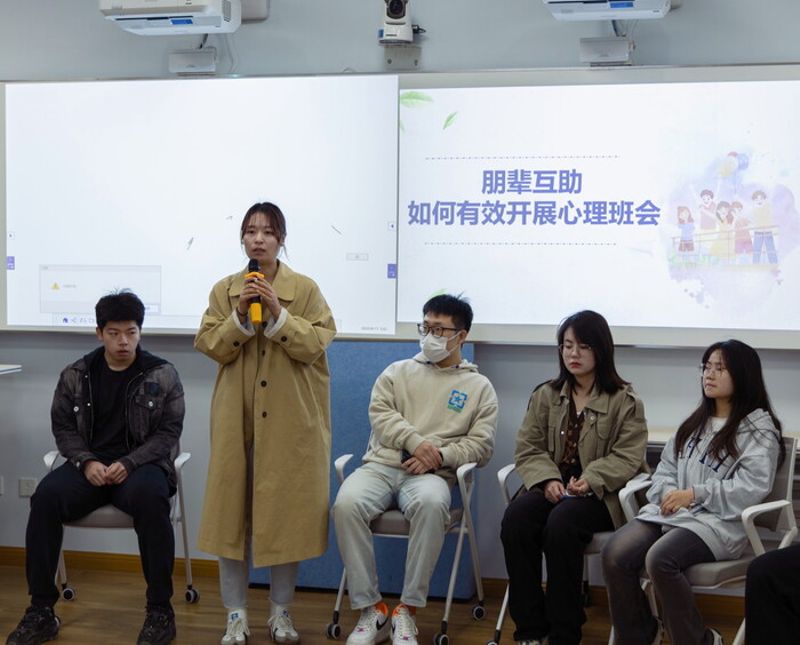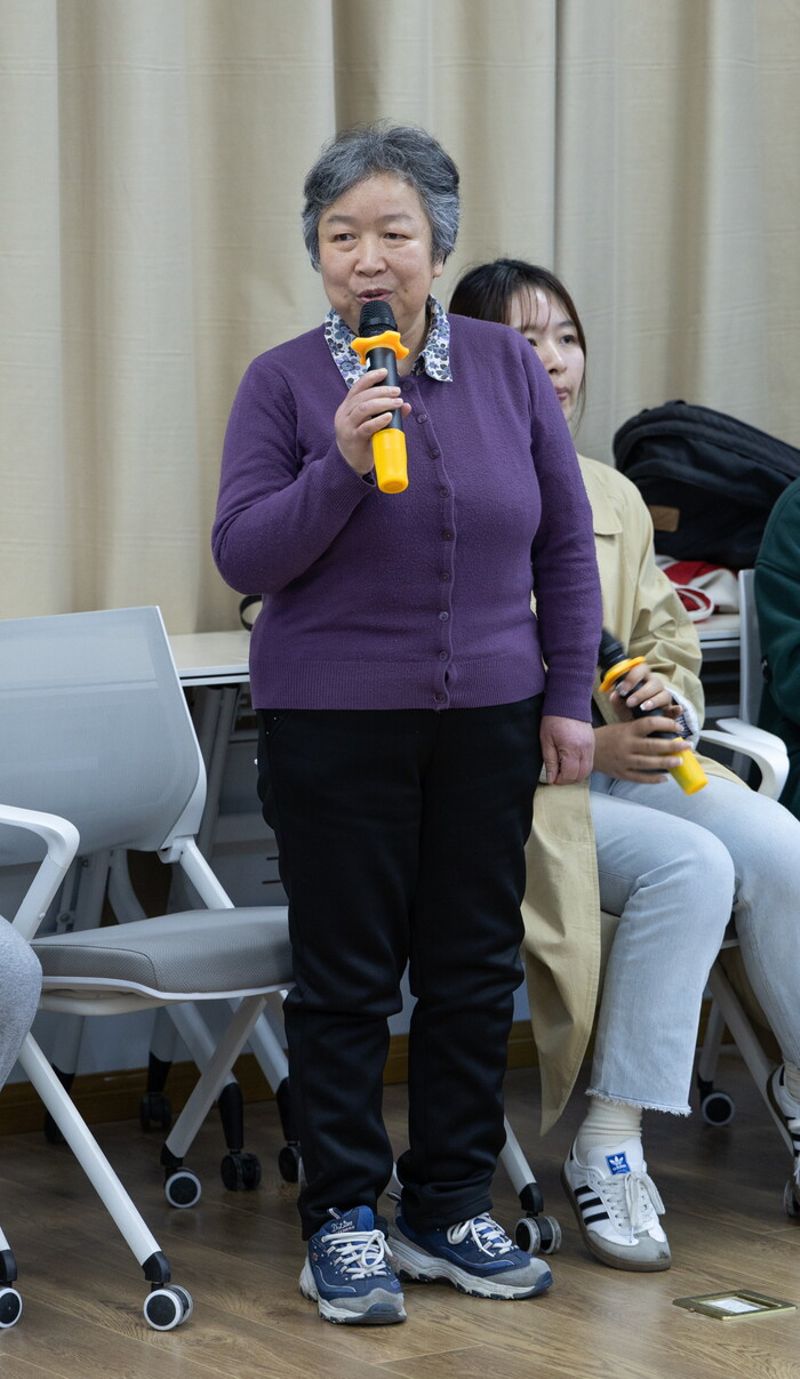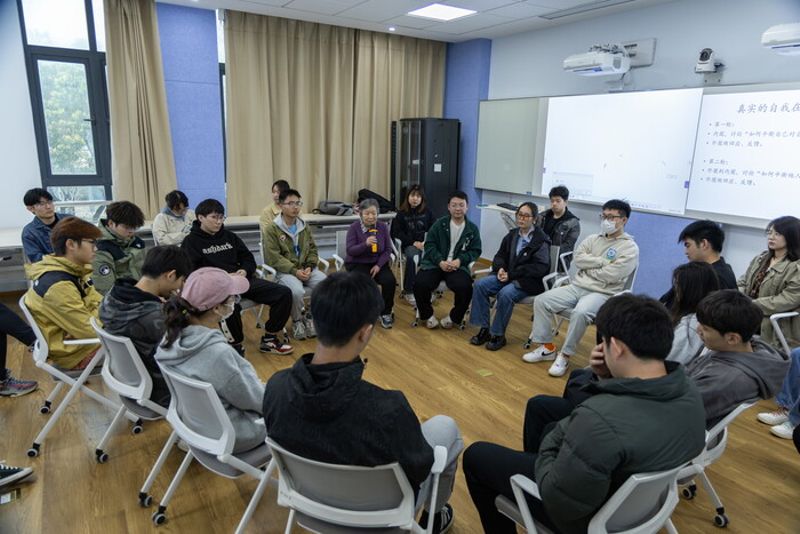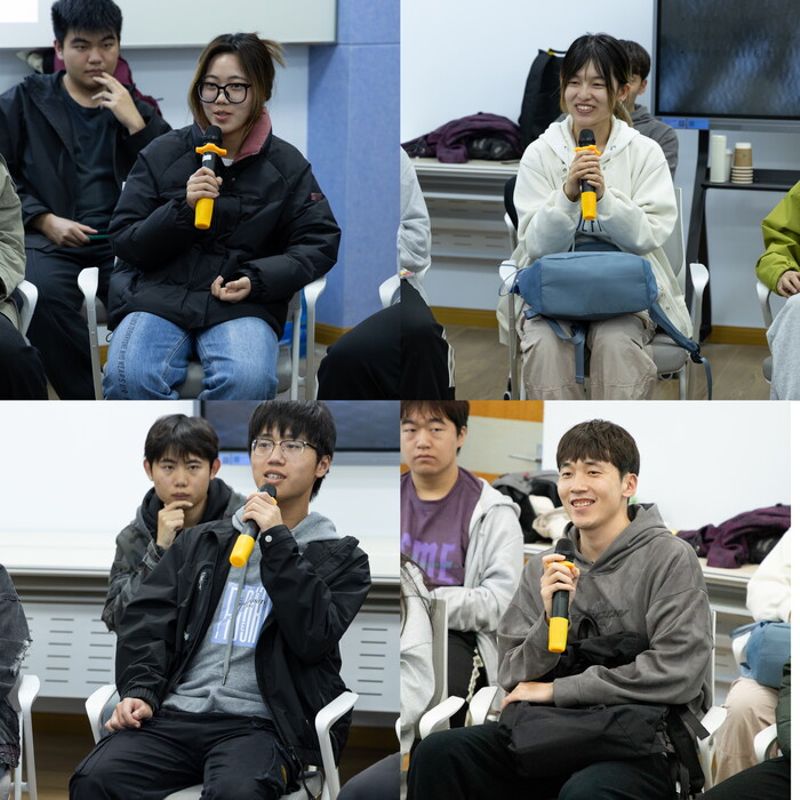Peer psychological support refers to the use of psychological help technology to give psychological support to peers, and psychological class meeting is an important form of peer mutual help, is an effective way to strengthen humanistic care and psychological counseling, can improve the effectiveness of class psychological work, improve class cohesion and psychological quality, and create a positive class atmosphere.
On the afternoon of April 17, the secondary psychological counseling station of the College of Marine Science and Engineering carried out peer psychological mutual assistance training activities of How to effectively carry out psychological class meetings. The activity invited the school mental health education teacher Liao Yuexin, the research psychology committee to participate in this activity, the college psychological counselor and second grade psychological guidance station master Sun Hanfen presided over this activity.
At the beginning of the activity, teacher Sun Hanfen introduced that this activity is mainly to prepare for the follow-up psychological class meeting of the psychological committee, experience dialogue, and be applied to the psychological class meeting, and stressed the importance of the psychological class meeting to the mental health of students.
Then, Mr. Liao Yuexin first introduced the seven philosophical positions of cooperative dialogue to the students, let them understand the concept of cooperative dialogue, and then led them to experience and carry out cooperative dialogue activities. The participants were divided into two large circles inside and outside. In the first round, some members of the psychology committee were invited to sit around the inner circle to discuss their expectations for themselves. Some students expressed their expectations for their scientific research, some students thought their expectations for weight management, and some students talked about their expectations for their academic performance. In response to the expectations of the inner circle students, the outer circle students shared their views and perceptions, and some students proposed to reduce pressure by reasonable time allocation and division into several small goals. After that, the inner circle exchange, the outer circle to the inner circle, was encouraged to think about others' expectations of themselves. The students talked about the expectations of their parents and friends, and shared their feelings with the outside students. Some students said that they should not magnify the expectations of others, and learn to recognize themselves reasonably, which triggered in-depth discussions and personal reflection among the students.
At the end of the activity, teacher Liao Yuanxin made a brief summary of the activity, and encouraged the psychological committee members to continue to think about and practice mental health. In the next step, the secondary psychological counseling station of the College of Marine Science and Engineering will continue to carry out a series of peer psychological mutual assistance training activities, continue to enrich the training forms, and promote the students to better practice in the class and dormitory.

Figure 1 Teacher Sun Hanfen introduced the purpose of this activity

Figure 2 Teacher Liao Yuexin introduced the content of the cooperation dialogue

Figure 3 Lead everyone to experience and carry out cooperative dialogue activities

Figure 4 Student exchange and sharing in inner and outer circles
